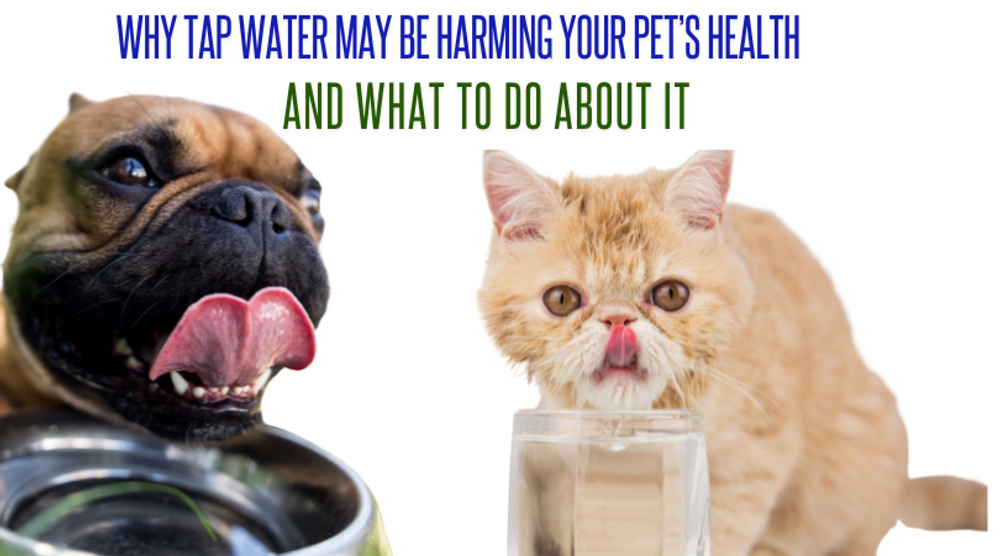Why Tap Water May Be Harming Your Pet’s Health (And What to Do About It)
Posted by Jewel on Apr 16, 2025
We all want what’s best for our pets—including fresh, clean water. But did you know that the water coming out of your tap may be doing more harm than good? While it might seem harmless, most municipal drinking water contains inorganic minerals that your pet’s body simply can’t use—and over time, they can contribute to serious health issues.
Let’s break down what that means and how to protect your furry friend.
What Are Inorganic Minerals?
Inorganic minerals are found in rocks, soil, and even plumbing systems. These include substances like:
- Calcium carbonate
- Magnesium sulfate
- Iron oxide
Municipal water systems often leave these minerals behind after treating and filtering water. While that might sound like a good thing (we all need minerals, right?), these are not the kind your pet’s body can absorb or use effectively.
Why Inorganic Minerals Don’t Help (and Can Actually Harm)
The minerals your pet’s body truly needs are organic minerals—those found in plants and whole foods. These are naturally chelated (bound with amino acids or enzymes), making them easy for the body to absorb and use.
In contrast, inorganic minerals are biologically inert. The body doesn’t know what to do with them, so it stores them in tissues, joints, and organs—leading to mineral buildup rather than nourishment.
How Mineral Buildup Affects Your Pet’s Health
Here’s what can happen when your pet drinks mineral-heavy tap water over time:
• Joint Stiffness and Arthritis
Inorganic calcium can settle into joints and connective tissue, contributing to stiffness, inflammation, and mobility issues—especially in aging pets.
• Kidney and Bladder Stones
Excess minerals like calcium oxalate or struvite can form painful stones, leading to urinary tract blockages or infections.
• Organ and Arterial Calcification
Just like pipes get clogged with scale, these minerals can settle into soft tissues, blood vessels, and lymph nodes, potentially compromising heart health and detox function.
A Simple Analogy
Think of your pet’s body like a plumbing system. If you’ve ever seen white scale buildup on your faucets or inside a kettle, that’s from inorganic minerals in the water. Now imagine that same buildup happening in your pet’s body—day after day, year after year. That’s exactly what can happen with untreated tap water.
What You Can Do
1. Switch to Filtered, Distilled or pure Spring Water
Use a high-quality water filter or get a water distiller that removes inorganic minerals and contaminants. Look for options like:
- Reverse osmosis
- Distiller water
- Structured or vortexed water
- Clean spring water (low total dissolved solids)
2. Support Healthy Mineral Intake
Offer bioavailable minerals from natural sources like:
- Raw meat is an excellent source of minerals and vitamins for pets
- Seaweed or kelp
- Nettle, alfalfa or dandelion leaves
- Fulvic and humic acid drops (plant-based mineral concentrates)
3. Help the Body Detox
Herbs like parsley, burdock root, and milk thistle can gently support the kidneys, liver, and lymph system in flushing out stored minerals and toxins.
Summary:
Clean water is foundational to your pet’s health, but not all water is created equal. The minerals in municipal tap water are not designed for the body—they’re meant for pipes, not pets.
By switching to cleaner water, raw feeding and supporting mineral detox, you’re giving your pet the gift of long-term wellness, vibrant energy, and a more comfortable life.

